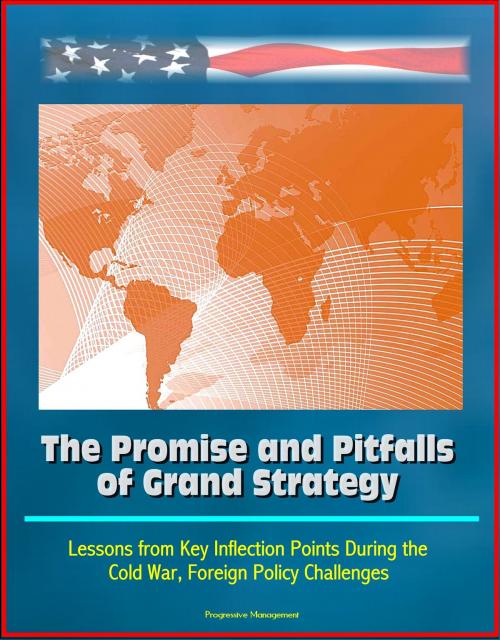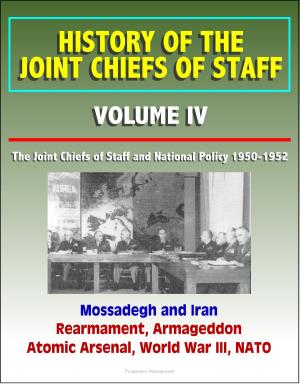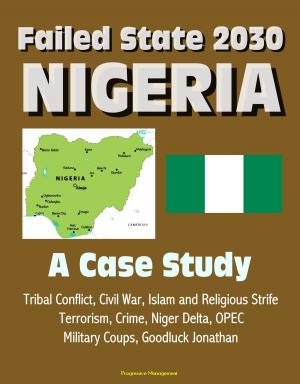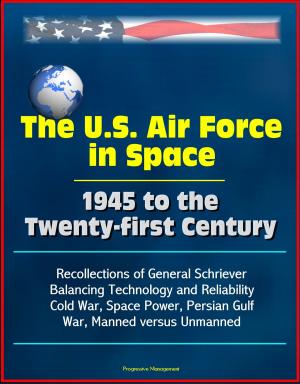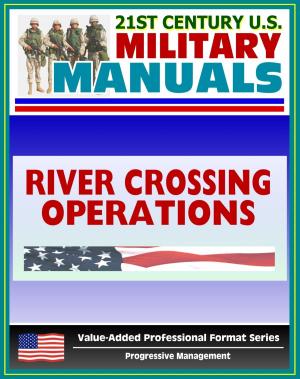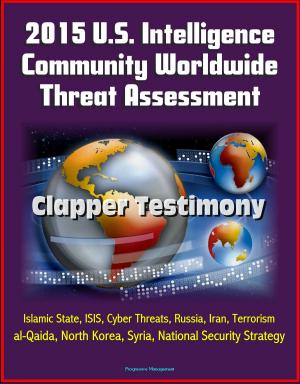The Promise and Pitfalls of Grand Strategy: Lessons from Key Inflection Points During the Cold War, Foreign Policy Challenges
Nonfiction, Social & Cultural Studies, Political Science, International| Author: | Progressive Management | ISBN: | 9781301823536 |
| Publisher: | Progressive Management | Publication: | February 18, 2013 |
| Imprint: | Smashwords Edition | Language: | English |
| Author: | Progressive Management |
| ISBN: | 9781301823536 |
| Publisher: | Progressive Management |
| Publication: | February 18, 2013 |
| Imprint: | Smashwords Edition |
| Language: | English |
Present debates about national security issues often revolve around the question of what type of "grand strategy" the United States should have. Yet, "grand strategy" itself can be a rather nebulous concept, and discussions of the issue can thus confuse more than they clarify. This monograph offers a thorough analysis of what grand strategy actually is, why it is so important, and why we often find it so challenging to design and implement. It draws on some of the classic strategic texts, as well as the history of two key moments in modern American grand strategy: the "golden age" of grand strategy during the Truman years at the outset of the Cold War, and the era of detente and triangular diplomacy with the Soviet Union and China during the Nixon-Kissinger years. It closes by offering a series of useful ideas for how American officials might approach the challenges of grand strategy in the 21st-century political and security environment. The Strategic Studies Institute is pleased to offer this monograph as a useful contribution to the continuing debate over America's role in a changing world.
This monograph offers a critical examination of the idea and utility of "grand strategy." The concept is very much in vogue these days, with commentators of all stripes invoking it in one way or another. But what the term actually means often remains unclear, and discussions of the issue too often muddle or obscure more than they illuminate. The purpose of this monograph, therefore, is to provide a more precise understanding of the meaning, importance, and challenges of American grand strategy—not to recommend any single grand strategy that the U.S. Government should follow, but to illuminate the promise and limitations of grand strategy as a national endeavor.
To this end, the monograph addresses three principal tasks. First, it offers a general discussion of what grand strategy actually is, and why it is simultaneously so essential and so difficult to do. Second, it further fleshes out these issues by revisiting the doing of grand strategy at key inflection points in the history of U.S. foreign policy—during the Harry Truman years of the early Cold War, and during the Richard Nixon/Gerald Ford/Henry Kissinger years between 1969 and 1977. Third, this monograph offers several basic suggestions for how U.S. policymakers might approach grand strategy as an intellectual and geopolitical pursuit.
Present debates about national security issues often revolve around the question of what type of "grand strategy" the United States should have. Yet, "grand strategy" itself can be a rather nebulous concept, and discussions of the issue can thus confuse more than they clarify. This monograph offers a thorough analysis of what grand strategy actually is, why it is so important, and why we often find it so challenging to design and implement. It draws on some of the classic strategic texts, as well as the history of two key moments in modern American grand strategy: the "golden age" of grand strategy during the Truman years at the outset of the Cold War, and the era of detente and triangular diplomacy with the Soviet Union and China during the Nixon-Kissinger years. It closes by offering a series of useful ideas for how American officials might approach the challenges of grand strategy in the 21st-century political and security environment. The Strategic Studies Institute is pleased to offer this monograph as a useful contribution to the continuing debate over America's role in a changing world.
This monograph offers a critical examination of the idea and utility of "grand strategy." The concept is very much in vogue these days, with commentators of all stripes invoking it in one way or another. But what the term actually means often remains unclear, and discussions of the issue too often muddle or obscure more than they illuminate. The purpose of this monograph, therefore, is to provide a more precise understanding of the meaning, importance, and challenges of American grand strategy—not to recommend any single grand strategy that the U.S. Government should follow, but to illuminate the promise and limitations of grand strategy as a national endeavor.
To this end, the monograph addresses three principal tasks. First, it offers a general discussion of what grand strategy actually is, and why it is simultaneously so essential and so difficult to do. Second, it further fleshes out these issues by revisiting the doing of grand strategy at key inflection points in the history of U.S. foreign policy—during the Harry Truman years of the early Cold War, and during the Richard Nixon/Gerald Ford/Henry Kissinger years between 1969 and 1977. Third, this monograph offers several basic suggestions for how U.S. policymakers might approach grand strategy as an intellectual and geopolitical pursuit.
